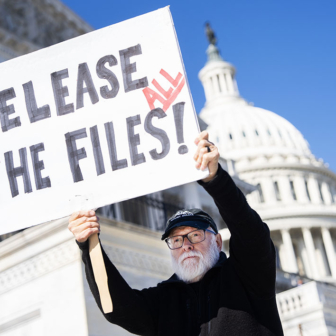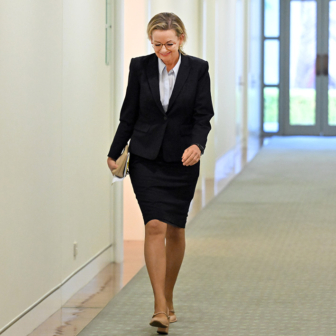In 2014 the NSW Independent Commission Against Corruption, or ICAC, decided to investigate alleged improper conduct by the talented but controversial Crown prosecutor Margaret Cunneen SC and her son’s girlfriend, Sophia Tilley. Cunneen was alleged to have told Tilley to feign chest pains after an accident to avoid being breathalysed. Both women, it should be said, vigorously deny the allegations.
Why ICAC chose to investigate this matter rather than leaving it to the police has never been revealed. On the face of it, conduct of this kind could hardly be seen as an instance of systemic corruption. No doubt ICAC felt it had good reasons to proceed in the manner it did, but those reasons may now never be brought into the public arena. This is a pity, because it has added legitimacy to criticisms of ICAC’s pursuit of the case.
Margaret Cunneen challenged ICAC’s jurisdiction in the courts. On 15 April 2014, the High Court of Australia, by 4–1 majority, upheld her arguments. It found that ICAC had travelled well beyond its jurisdictional limits. More broadly, the majority’s interpretation of the ICAC legislation meant that many previous findings by the corruption body might also have been made beyond its jurisdiction, and that several current investigations were in danger of collapse.
The NSW parliament, taking a bipartisan approach, has passed urgent legislation in an attempt to validate past findings by ICAC. But the fate of current and future investigations must await a report by an expert panel appointed to examine whether ICAC’s powers should be subject to any limitations or enhancements. There is not the slightest doubt that, without remedial legislation, the High Court’s decision would substantially reduce ICAC’s powers. The panel’s report and the government’s response to it will be critical. Will ICAC fully regain its broad range of investigative powers? Will its ability to expose systemic corruption at all levels remain diminished?
Margaret Cunneen’s challenge first came before Justice Hoeben, the NSW Supreme Court’s chief judge in common law. His Honour had no difficulty in finding that the investigation was well within ICAC’s powers and that Cunneen’s conduct, if it were established as alleged, could amount to a perversion of the course of justice.
The litigation then moved to the NSW Court of Appeal. The majority (Justices Basten and Ward) held that the alleged conduct was not corrupt within the meaning of section 8(2) of the ICAC Act and therefore allowed the appeal. The chief justice, Tom Bathurst, dissented from the majority. He reasoned that the plain and ordinary meaning of the statutory language in question meant that ICAC could investigate “where there was conduct having the potential to limit or prevent the exercise of official functions, without the necessity for wrongdoing on the part of the public official.”
At the heart of these arguments is the definition of “corrupt conduct” detailed in sections 7, 8 and 9 of the Act. This is a complex and cumbersome series of legislative provisions. It is sufficient, in overly simplistic terms, to make the point that section 8(1), on its face, is principally dealing with corrupt conduct by a public official. Again simplistically, section 8(2) appears to be dealing with a different subject, namely conduct by someone who may not be a public official but who interacts in a particular criminal way with the public official. Relevantly to Ms Cunneen’s investigation, the section reads as follows:
Corrupt conduct is also any conduct of any person (whether or not a public official) that adversely affects, or that could adversely affect, either directly or indirectly, the exercise of official functions by any public official, any group or body of public officials or any public authority and which could involve any of the following matters:
(g) Perverting the course of justice.
Section 9 provides that the conduct does not amount to corrupt conduct unless, relevantly, it could constitute or involve a criminal offence or a disciplinary offence.
The allegation in Cunneen’s case was that her advice to Tilley, and the latter’s response to it, had the capacity to undermine the police investigation at the scene of the car accident. Hence it could “limit or prevent” the proper exercise of functions by the attending police officer. For example, the police officer would not have insisted on a breath test.
At the High Court, the majority (Chief Justice French and Justices Hayne, Kiefel and Nettle) posed the question succinctly:
The principal question for determination is what is meant by the expression “adversely affects, or that could adversely affect… the exercise of official functions by any public official” in the definition of “corrupt conduct” in section 8(2) of the ICAC Act.
“Adversely affect” is a protean expression. In this context, however, there are only two possibilities. Either it means adversely affect or could adversely affect the probity of the exercise of an official function by a public official, or it means adversely affect or could adversely affect the efficacy of the exercise of an official function by a public official in the sense that the official could exercise the function in a different manner or make a different decision from that which would otherwise be the case.
The former meaning accords with the ordinary understanding of corruption in public administration and consequently with the principal objects of the ICAC Act as set out in section 2A. The latter would result in the inclusion… of a broad array of criminal offences and other unlawful conduct having nothing to do with the ordinary understanding of corruption in public administration or the principal objects of the Act. It would also enable ICAC to exercise its extraordinary coercive powers… in areas ranging well beyond the ordinary understanding of corruption in public administration… For those reasons, and the reasons which follow, the former meaning is to be preferred.
The majority members of the High Court considered the history of the legislation. They applied well-known and straightforward principles of statutory interpretation. They acknowledged, however, that there were no previous decisions that had specifically focused on the particular dilemma raised in the matter before the court.
The majority listed examples of relatively trivial matters that might be caught up by the broader definition advocated by ICAC in the appeal. They reasoned that none of these “trivial” examples were likely to be contemplated as falling within the ordinary powers of a body whose core task was to investigate, expose and prevent corruption affecting public authorities.
In a powerful dissent, Justice Gageler argued that the language of section 8(2) ought be accorded its natural and ordinary meaning. In this regard, His Honour agreed with Chief Justice Bathurst’s reasoning. He preferred it to the reasoning of both the High Court majority and the other members of the Court of Appeal. His Honour said:
First, it accords to the words “could adversely affect,” in section 8(2) an ordinary grammatical meaning, identical to the ordinary grammatical meaning of the same words in section 8(1)(a). The ordinary grammatical meaning connotes nothing more than impediment or impairment.
His Honour considered that the legislative history of the enactment supported his view of its ordinary and natural meaning. His Honour traced this in considerable detail. In relation to the list of “trivial” matters contained in the majority decision His Honour said this:
What is equally important to acknowledge, however, is that a consequence of limiting the first condition in section 8(2) to conduct which has the potential to lead to some want of probity on the part of a public official in the exercise of an official function is entirely to exclude from the definition of corrupt conduct a case of fraud on a public official or of conspiracy to defraud a public official… which entails no wrongdoing by the public official. That is so no matter how widespread the conduct might appear and no matter how detrimental its effects on public administration or on the community or the environment.
His Honour emphasised that the narrower probity reading of section 8(2) resulted in ICAC having no power to investigate, expose, prevent or educate about statewide endemic collusion among tenderers in tendering for government contracts. Equally, it would have no power to investigate, expose, prevent or educate about serious systemic fraud in the making of applications for valuable licences and authorities granted under state legislation.
In examining the history of ICAC and the operation of the legislation since its introduction, Justice Gageler observed that there had been a number of earlier ICAC reports to parliament that made findings of corrupt conduct on the basis that the conduct in question had the potential to impair the efficacy of official functions by a public official. Moreover, His Honour considered that parliament, in dealing with the 2005 McClintock Report on the legislation, had plainly acted in accordance with the proposition that section 8(2) did not require wrongdoing on the part of a public official.
Considerable respect must, of course, be given to the views of the majority of the High Court of Australia. Moreover, their views, once and for all, establish the legal position between ICAC and Margaret Cunneen in relation to the proposed investigation of her conduct. The investigation of that conduct is now at an end. It is fair to say, however, that the decisions of both Chief Justice Bathurst in the Court of Appeal and Justice Gageler in the High Court remain powerful arguments in favour of a construction different from that favoured by the majority.
To the community, it must certainly appear that ICAC has done a fine job, over the years, of exposing corruption and seeking to educate public officials and public institutions about better ways of countering corruption. Obviously enough, corruption cannot be stamped out altogether but, compared to other countries throughout the region, Australia’s attempts to stem the evil of corruption has had a considerable measure of success. In this country, New South Wales has led the way. Of course, ICAC has been criticised and the very wide powers it wields have sometimes been viewed with suspicion. It is useful to reflect on these criticisms.
• First, there has been repeated, from time to time, a complaint that too few prosecutions arise out of the corruption findings made by ICAC. (Of course, the ultimate decision to prosecute and the assemblage of the evidence to enable prosecution lies with the Director of Public Prosecutions, not with ICAC. It needs to be remembered that ICAC is an investigative body not a prosecuting body.)
• Second, those who have been slated by ICAC for corrupt conduct often decry its measures and call it unfair, secretive, intrusive and the like.
• Third, the range and nature of ICAC’s powers, and the width of consequent media coverage, have moved some critics to suggest investigations should be held in private as they are in South Australia.
Since 2010 ICAC has conducted more than twenty-seven major investigations, covering areas as diverse as educational institutions, government agencies of all kinds and local government. Indeed, more recently it has delved into the very heart of parliament, subjecting ministers and ex-ministers to intense investigation concerning serious allegations. Operations Jasper and Acacia are two cases in point. These related to circumstances surrounding minister Ian Macdonald’s decision to open a mining area in the Bylong Valley and the allocation of an exploration licence. A number of senior businesspeople were the subject of adverse findings in Operation Jasper.
It is difficult to argue that the public has not been well served by ICAC. Views about whether its activities should be conducted in public or private are polarised, but parliament has preferred that ICAC operate publicly. There is clearly a need to shine a very bright light into the dark corners where corruption might lurk. Although it is often said that ICAC has the capacity to tarnish the reputation of innocent people unfairly, it must be asked whether this has in fact happened, at least in recent times. Those who have been recently criticised by ICAC may argue that they fall into this category but it remains to be seen whether there is any substance to their complaints.
When the NSW government announced earlier this month that it would legislate to validate retrospectively a number of findings made against private individuals prior to the High Court’s decision, the premier, Mike Baird, said that “it was important for the public trust that those found corrupt should not escape judgement.” No doubt the government’s swift decision was prompted by the fact that four businessmen found by ICAC to have engaged in corrupt conduct through their dealings with former Labor minister Eddie Obeid had sought orders in the NSW Court of Appeal to overturn the findings against them. The corrupt conduct findings against the four – Travers Duncan, John McGuigan, Richard Poole and John Atkinson – related to the allegation that the Obeid family’s interest in a coal tenement at Mt Penny had been concealed.
When these orders were sought in the Court of Appeal, ICAC responded by stating publicly that it accepted that it had no legal basis to fight the men’s application to have the corruption findings overturned. In a statement ICAC said, “On the basis of its legal advice and in light of the High Court decision, the Commission accepts that it has no arguable basis or option to resist the orders sought.”
The new laws were passed urgently in the evening of 6 May 2015 and came into force the next morning. Their retrospective character caused John McGuigan (one of those appealing against the corrupt conduct findings) to say that they “made a mockery of the judicial process and set an extremely dangerous precedent.”
At the same time the legislation was passed, the premier announced that a panel chaired by former chief justice of the High Court, Murray Gleeson QC, had been asked to report on the preferable limits of ICAC’s jurisdiction by July 2015.
As is well known, ICAC is presently “part heard” in two investigations known as Credo and Spicer. Essentially these relate to investigations into donations to Liberal candidates and into the conduct of people associated with Australian Water Holdings Pty Ltd. The High Court judgement has effectively neutered this inquiry. Whether ICAC will be able to make findings of corrupt conduct now depends on the outcome of the Gleeson inquiry and, more importantly, the government’s response to it.
The premier’s decision to introduce new legislation has brought criticism from some quarters. In the Australian, for example Chris Merritt condemned the premier under the headline “No Redress for Victims of ICAC.” It is difficult to see how those who were found guilty of corrupt conduct during the inquiries conducted by retired ICAC commissioner David Ipp can fairly be described as “victims.” The High Court decision has provided excellent ammunition for these people to argue that the findings should be set aside, but it is likely the community at large would consider it perfectly appropriate for the government to legislate to restore a view of the ICAC legislation that both supported ICAC’s findings and reflected the intentions of both major political parties in the state.
One thing is clear, though: those who are principally affected by the new legislation will not easily give up the ghost, and we can expect further litigation challenging the new legislation. We will all await with interest the review by Murray Gleeson QC and Bruce McClintock SC. Athough its outcome is impossible to predict, the review is likely to suggest restricting ICAC’s investigations to matters involving systemic corruption, although it needs to be recalled that the present legislation places restrictions in this regard (though they are not absolute).
The real fear is that the panel may take the view, as did the High Court majority, that corrupt conduct should be restricted to conduct which has an impact, actually or potentially, on the probity of the public official’s actions. This, for the reasons advocated by the Fairfax press, would be a sad outcome. My view – and indeed my resolute hope – is that the panel will see corruption for what it is and embrace a broad view of the definition of corrupt conduct. Then, perhaps, the tiger may roar again. •




